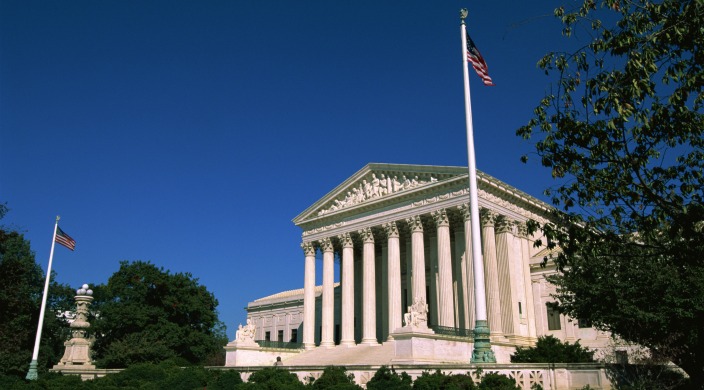
On December 13, 2023, the Supreme Court decided to hear a case that will determine the future of access to medication abortion in the United States: U.S. Food and Drug Administration, et al. v. Alliance for Hippocratic Medicine, et al.
Mifepristone (often shortened to "mife") is one of two medications commonly used in a medication abortion in the United States (the other being misoprostol), as well as in miscarriage treatment to prevent further complications from occurring after the loss of a pregnancy. Medication abortion is currently approved for use up to 10 weeks of pregnancy and currently compromises over half of abortions in the U.S.
It's no secret as to why medication abortion is so popular: it is both safe and effective. Medication abortion, including remotely and at a health center, has a safety record of over 99 percent and is a key part of expanding reproductive health care in a country where it is already severely restricted. By providing an option that can be performed outside of a clinical setting ("self-managed"), medication abortion provides an alternative for people who may not want or be able to go to a provider. In states with medically harmful abortion restrictions and barriers to clinic-based care, self-managing abortion is often the only option.
After the Dobbs v. Jackson decision overturning Roe v. Wade and removing federal protections for abortion, the floodgates opened across the country for those who want to restrict access to reproductive healthcare. The current case, FDA v. Alliance for Hippocratic Medicine , claims that the federal Food and Drug Administration (FDA) was mistaken in its approval of mifepristone more than two decades ago and as such, the drug should be removed from public consumption. This case was seemingly deliberately filed in the Amarillo division of the United States District Court for the Northern District of Texas, a division with just one judge who has become known for his anti-reproductive freedom decisions.
In his initial ruling in April 2023, Judge Matthew Kacsmaryk ruled that the FDA should rescind its 20-year-old approval of mifepristone. Fortunately, the Supreme Court issued a stay, pausing the ruling pending full appeal. Following an FDA appeal, the Fifth Circuit Court of Appeals ruled in August 2023 that although the FDA did not have to rescind its approval of mifepristone, pharmacies do have the power to revert to an older label, which would essentially remove much of the increased access to medication abortion over the past several years. Fortunately, this decision was paused due to the Supreme Court's stay. But now that the Supreme Court has decided to take up the case, the Court could eventually decide to uphold the Fifth Circuit's ruling or even revert to Judge Kacsmaryck's initial decision. Mifepristone and medication abortion have become more necessary than ever since the overturning of Roe, and this attempt to remove mifepristone is just one more in a long line of baseless attacks on reproductive freedom.
Jewish tradition guides our support of bodily autonomy and abortion access. The rabbis teach that a physician's job is to heal, and failing to do so is a grievous offence: "The Torah has granted the physician permission to heal, and it is a religious duty which comes under the rule of saving an endangered life. If he withholds treatment, he is regarded as one who sheds blood" (Shulchan Arukh, Yoreh De'ah 336:1) Furthermore, the Talmud teaches that providing health care is not just an obligation of the doctor, but for society as well. It is for this reason that Maimonides listed health care first on his list of the ten most important communal services a city must offer its residents if the city is to be found worthy for a great scholar to live there (Mishneh Torah, Hilchot De'ot IV:23). As Jews, we are moved to act for abortion access, and protect it whenever we can. Access to safe and effective medication abortion is an act of pikuach nefesh (preservation of life), one of our most sacred values.
As we await oral arguments in FDA v. Alliance for Hippocratic Medicine in the coming months, act now to protect reproductive rights.
- Tell Congress to protect access to abortion.
- Educate yourself and your friends about medication abortion and mifepristone.
- Support local abortion funds, which work every day to ensure those most affected by restrictions can access reproductive healthcare.
Related Posts

Kosher Feijoada: Reflections on Latin Heritage Month and Sukkot

Securing the Vote

